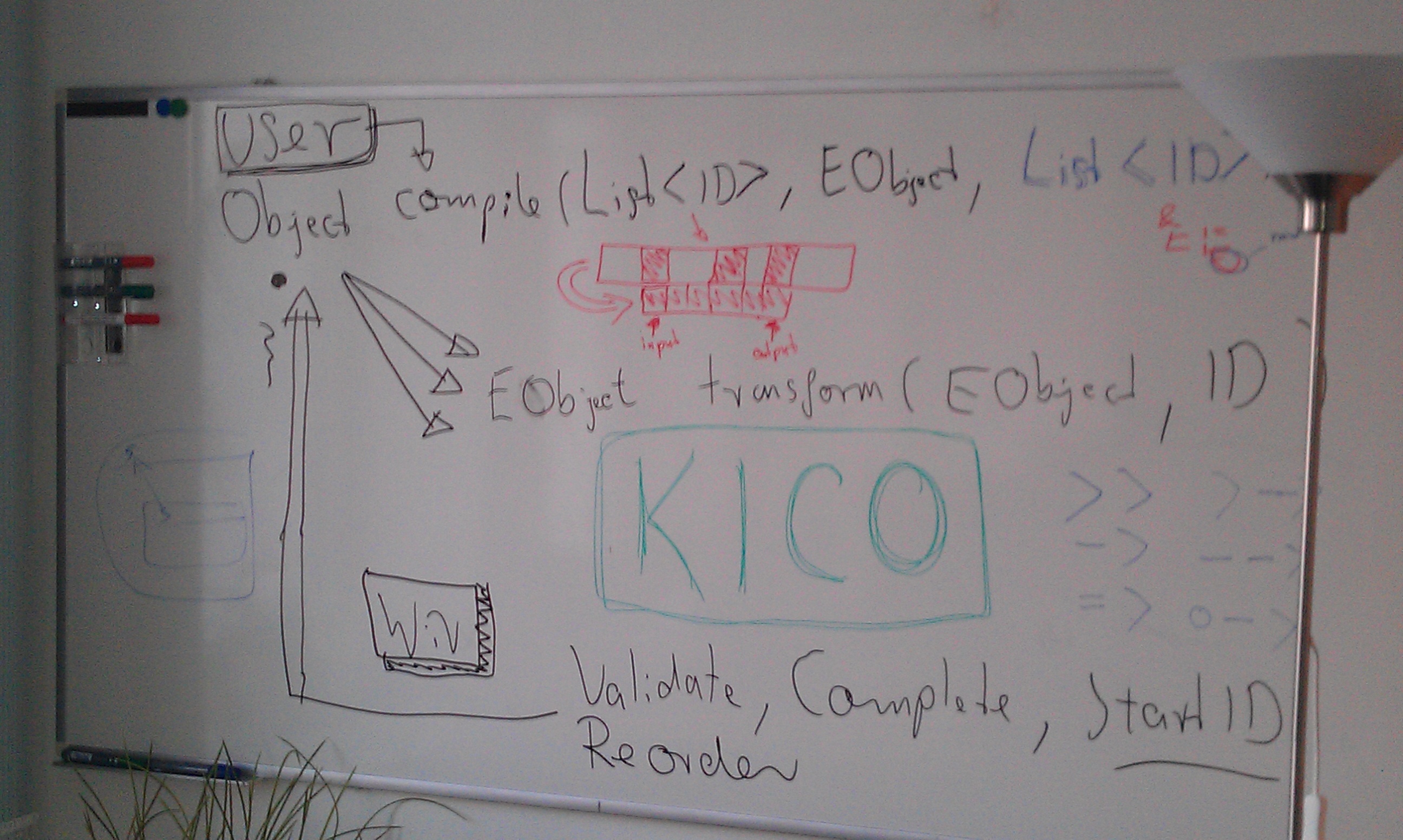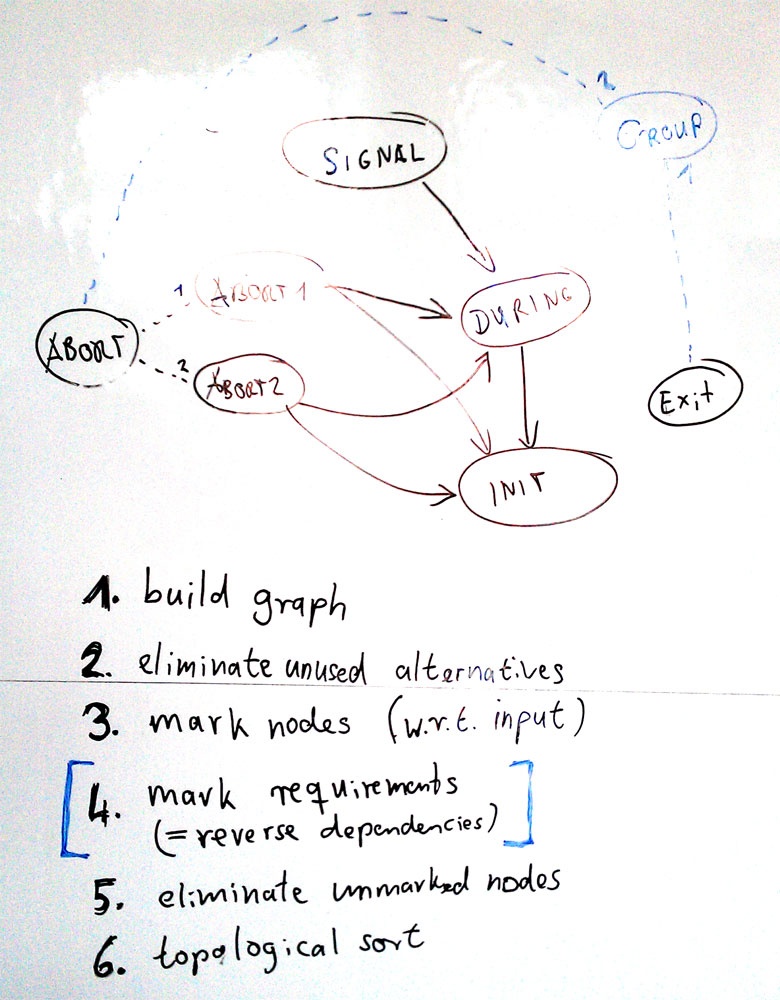You are viewing an old version of this page. View the current version.
Compare with Current
View Page History
« Previous
Version 4
Next »
Responsible:
Related Theses:
WARNING: THIS PAGE IS CURRENTLY UNDER CONSTRUCTION. THE CONTENT MIGHT CHANGE EVERY FEW MINUTES!
The Priority-Based Compilation
The priority-based low-level compilation approach uses the established compiling chain for SCCharts until the dependency analysis of the SCG is finished. From this point, either the netlist low-level compilation approach or the priority-based low-level compilation approach can be used. Because of the different approaches, it is possible, that one of the compiler finds a valid schedule for an SCChart, while the other fails.
General
The priority-based low-level compilation approach compiles an SCG enriched by the results of the dependency analysis to SCL_P, whose basis is the programming language C and which is enriched by the SCL_P macros. Therefore the regions of the SCG are fragmented into threads, whose priority determines the order in which the threads are executed. A thread might change its priority, which results in a context switch. The adiministration of the threads is done by the SCL_P macros. As the calculation of the thread priorities is not trivial, it done stepwise, which should help the user to understand how it is done. This is provided by a KiCo compilation chain, which can be called from the SCCharts editor or from the SCG editor.The image below shows the compilation chain as shown in the SCChart editor

Extension Point
Add dependency to
de.cau.cs.kieler.kico
Add the extension
Add one of the following extension element

Extension Element | Description |
|---|
| The defined class must extend "de.cau.cs.kieler.kico.Transformation" and must implement the methods defined in "de.cau.cs.kieler.kico.ITransformation". These are |
| |
| |
Example
<extension point="de.cau.cs.kieler.kico.transformation"> <transformationGroup id="NORMALIZE" dependencies="TRIGGEREFFECT, SURFACEDEPTH" name="Transform All Normalize"> </transformationGroup> <transformationMethod class="de.cau.cs.kieler.sccharts.extensions.SCChartsCoreTransformation" id="TRIGGEREFFECT" method="transformTriggerEffect" name="Transform Trigger and Effect"> </transformationMethod> <transformationMethod class="de.cau.cs.kieler.sccharts.extensions.SCChartsCoreTransformation" id="SURFACEDEPTH" method="transformSurfaceDepth" name="Transform Surface Depth"> </transformationMethod> <transformationGroup id="ALL" dependencies="CORE NORMALIZE" name="Transform All"> </transformationGroup> </extension>
Compilation
Examples
import de.cau.cs.kieler.kico.KielerCompiler; ... private MyEObjectClass myMethod(EObject eObject) { ... transformed = (MyEObjectClass) KielerCompiler.compile("ABORT, SIGNAL", eObject); ... return transformed }
import de.cau.cs.kieler.kico.KielerCompiler ... def dispatch MyEObjectClass myMethod(EObject eObject) { transformed = KielerCompiler.compile("ABORT, SIGNAL", eObject) as MyEObjectClass ... transformed }
Requirement Completion
Original 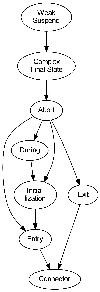 Original Dependency
Graph | 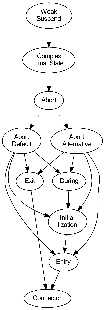
|
|---|
| Example 1 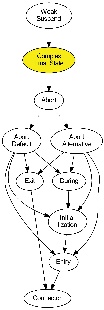 | 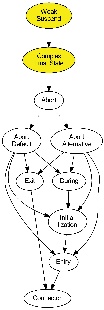 Auto selected
requirements |
|---|
|
|---|
Example 2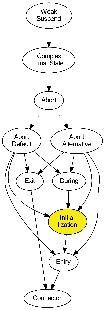
| 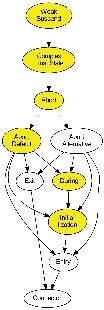
Auto selected
requirements
using DEFAULT
of alternative
group |
|---|
| Example 3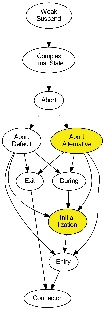
| 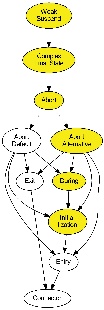
Auto selected
requirements
using selected
alternative |
|---|
|
|---|
Help / Problems / FAQs
Symptom | Reason | Solution |
|---|
You get the following run time error:ENTRY de.cau.cs.kieler.klighd 4 0 2014-03-17 11:08:46.009
!MESSAGE
!STACK 0
java.lang.RuntimeException: Cannot find a transformation with the ID 'ABORT2'. Make sure
that the transformation with this ID is registered and its declaring plugin is loaded.
Make sure that the ID does exactly match (case sensitive). Maybe you forgot to separate
multiple ID's by a comma.
at de.cau.cs.kieler.kico.KielerCompiler.getTransformation(KielerCompiler.java:61)
at de.cau.cs.kieler.kico.KielerCompiler.getDependencies(KielerCompiler.java:82)
at de.cau.cs.kieler.kico.KielerCompiler.isDependingOn(KielerCompiler.java:102)
at de.cau.cs.kieler.kico.KielerCompiler.insertTransformationID(KielerCompiler.java:136)
at de.cau.cs.kieler.kico.KielerCompiler.expandDependencies(KielerCompiler.java:164)
... | Maybe the plugin declaring "ABORT2" was not loaded
or the ID is misspelled. | Check why "ABORT2" may not be found
by KiCo, more specifically, check if the
declaring can be loaded (sometimes
compiler error prevent it from being loaded
or it has unsatisfied dependencies).
Also check the spelling of the ID, maybe
the declaring plugin defines the transformation
with the ID "abort2". |
You get the following error:!ENTRY de.cau.cs.kieler.kico 2 2 2014-03-17 11:26:13.818!MESSAGE Extension 'TERMINATION' from component: de.cau.cs.kieler.sccharts cannot be
loaded becaus this ID is already taken. (de.cau.cs.kieler.kico) | registered and this ID cannot be used a second time.The component "de.cau...sccharts" tries to registertaken. | |

